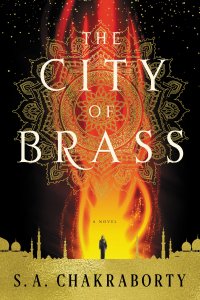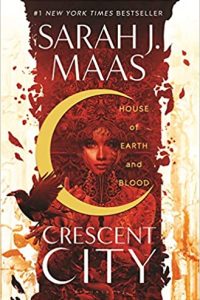Paul Di Filippo Reviews Flint and Mirror by John Crowley
 Flint and Mirror, John Crowley (Tor 978-1250817525, hardcover, 256pp, $26.99) April 2022.
Flint and Mirror, John Crowley (Tor 978-1250817525, hardcover, 256pp, $26.99) April 2022.
Shortly after the 2017 publication of John Crowley’s masterful novel, Ka: Dar Oakley in the Ruin of Ymr, Crowley was heard to opine that the book might be his last piece of long fiction, some fifty years of hard work and exquisite dreaming having taken their natural toll and led to a point of closure and cessation. A sad but entirely understandable stance. So to come unexpectedly into possession of this new book is a joyous miracle. It proves to be not quite as monumental as some of Crowley’s earlier works, but remains utterly captivating and satisfying, exhibiting all his trademark literary craft, as well as his deep perceptiveness about life, time, nature and the universe. Insofar as it recounts the dramatized biography of a historical personage and follows consensus history (save for the introduction of resonant magics which nonetheless do not ultimately alter events as recorded by the history books), the book shows a bit of kinship to Crowley’s other anomalous project, The Chemical Wedding, his reimagining and recasting of a core occult text. However, the new book inhabits more fully the vestments of a traditional novel.
One curious pendant to our tale: when a portion of this novel appeared in the Dozois-helmed anthology The Book of Magic in 2018, it was presented as a discovery from the papers of Fellowes Kraft, that totemic writer figure from Crowley’s own Aegypt cycle. It’s an amusing conceit, but seems to have been abandoned for this edition.
Our protagonist is the famous Hugh O’Neill, the Irish Earl of Tyrone (1550-1616), contemporary of Queen Elizabeth the First, and of sorcerer John Dee, both of whom figure prominently in the book. (The reappearance of Dee, long an icon to Crowley, allows the author to magnify and shade his previous interpretation of the character.) We come upon Hugh first in exile in Rome, an old man on the point of death. Behind him is a vast landscape of accomplishments and failures, love and warfare, mysticism and realpolitik, and the reader will get to experience them deeply as we plunge into Hugh’s memories (to resurface at the end of the book, naturally enough, back in Rome and Hugh’s final moments).
We see child Hugh arrive at the family castle, around age ten, as a kind of fosterling figure, beholden to uncles and other relatives for his nurture and protection. Crowley gives us a keen portrait of the youth, his sensitivity and alertness, prefigurations of the vital adult he will become.
In later years Hugh O’Neill would come to feel that there was within him a kind of treasure-chest or strong-box where certain moments in his life were kept, whole: some of them grand, some terrible, some oddly trivial, all perfect and complete with every sensation and feeling they had contained.
One welcoming figure is the potent blind poet, O’Mahon. Before too long, O’Mahon is introducing Hugh to the supernatural inhabitants of the land, who gift Hugh with a piece of flint and an owl’s feather. “The flint is the commandment… and the feather is the promise.” So endowed, Hugh is next brought to England and the court. He receives from Dr. Dee the famous obsidian scrying mirror, small enough to be worn on a chain around Hugh’s neck. This mirror is a dedicated device, keeping open a channel of communication straight to one person only: Queen Liz. Hugh’s entire life will be contoured by the love-hate relationship facilitated by Dee’s gift.
At this point, growing more and more savvy, Hugh is pretty well outfitted for the rest of his life—and the remainder of this book. It’s a tale rich with friendships and love, domestic environments and the battlefields. Crowley recounts epic battles and betrayals, aspirations and defeats over the course of decades, until that moment when the cause of Irish independence is decisively defeated, and Hugh and many others must flee their beloved homeland.
It should be mentioned that there is one incredibly affecting subplot involving Ineen Fitzgerald, a simple seaside crofter, and her love for a man named Sorley, who turns out to be the shape-shifting King of the Seals. Extracted from the larger setting, this tale would make a beautiful standalone item. Nonetheless, its presence here adds useful ramifications to Hugh’s career.
This is a very elegiac novel, a real tragedy in the classical sense: the downfall of a noble individual due to his own flaws and the circumstances of his era. But beyond that angle, Crowley gives us tactile portrait of ancient Ireland—naturally enough, the setting for nine-tenths of the action—and that land’s eternal quest for independence, a quest that obviously rings down to the present day. He conveys his patented romantic take on the mystery of the passage of time and the fatedness of all lives. His depiction of Hugh O’Neill and the other once-living real people endows them with a touching substantiality that mere history books cannot encompass. And of course, the literal magic woven through their lives adds its special luster. “Taking [the flint in his hand]…he knew in his inmost soul that it could bring forth those hosts… And in that day he called upon them, would they leave their feasting and dancing and come forth, would they agree to be commanded by him?”
Readers of Morgan Llywelyn and Guy Gavriel Kay (and even T. H. White) will glom onto this book as residing in magical fields naturally contiguous to what those other authors do. Fans of Crowley’s past fictions will happily note the return of his majestic yet simple prose stylings and melancholy beauties. But while reading this novel, I thought of another allied work, and that is Hal Foster’s classic Prince Valiant newspaper comic. Foster succeeded better than almost anyone else in creating a golden ambiance of myth and heroism, magic and honor, beauty and terror, conjuring up realms both quotidian and supernal, not bereft of comedy and lustiness. Crowley follows winningly in Foster’s big footsteps.
 This review and more like it in the May 2022 issue of Locus.
This review and more like it in the May 2022 issue of Locus.
While you are here, please take a moment to support Locus with a one-time or recurring donation. We rely on reader donations to keep the magazine and site going, and would like to keep the site paywall free, but WE NEED YOUR FINANCIAL SUPPORT to continue quality coverage of the science fiction and fantasy field.
©Locus Magazine. Copyrighted material may not be republished without permission of LSFF.







